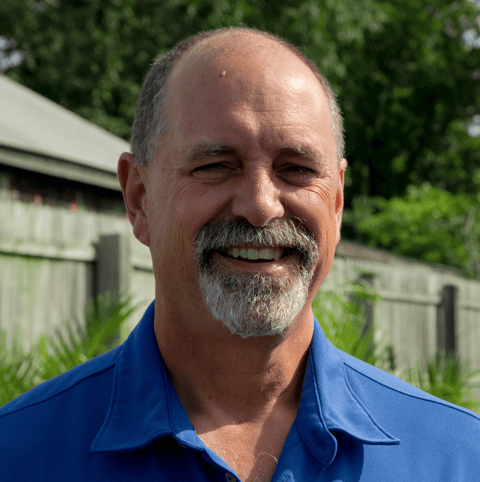
The Best Time to Mulch and The Best Type of Mulch to Use
Don't underestimate the power of mulch. It does great things for your landscape.
Sure, flowers are brighter, shrubs are bigger and nothing says lush like a rolling carpet of green lawn.
But without mulch, your landscape is lacking.
How much mulch do you need? What kind should you use? When’s the best time to put down mulch?
Stick with us. We know much about mulch.
The Benefits Of Mulch
A nice layer of mulch helps your soil retain moisture, so you won't have to water as much. Moist roots are happy roots.
It keeps those pesky weeds at bay by blocking the sunlight they need to sprout.

Mulch protects your plants' roots — both from the scorching sun and winter’s chill.
It prevents rain from washing away your landscape soil.
As time passes, you’ll notice your organic mulch will settle and look thin. That means it’s breaking down, enriching your soil and making it more fertile.
So even when it’s worn out, mulch is still hard at work to improve your landscape.
The Beauty Of Mulch
Yes, mulch is practical, but it’s also beautiful. As soon as that nice fresh layer of mulch goes down, your landscape looks instantly put together, well tended and tidy.
Mulch ties everything together, as well as adding some texture and color to your beds.
You won't be able to stop staring at it.
When’s The Best Time To Mulch?
Here in the Washington, DC area, we put down mulch twice a year. The best time to mulch is in the spring and the fall.

We start preparing planting beds at the end of February, clearing out winter’s debris, neatening edges, cutting back ornamental grasses and perennials.
We follow that by spreading one to two inches of mulch to help beds retain moisture and keep weeds at bay all summer, as well as keeping the landscape looking polished.
When beds need it, we spread a thinner layer of mulch in the fall, just before we replace summer flowers with fall varieties.
How Much Mulch Should Be Put Down?
As great as mulch is, there’s such a thing as too much mulch. And too little.
Excess mulch will cause your soil to be soggy, and plant diseases can set in.
If you don't add enough, it won't keep weeds from pushing their way through.
Two inches of mulch works well for most flower beds.
Choosing The Best Type of Mulch
Our favorite mulch here at Level Green is double shredded hardwood bark mulch. We go the extra step to use dyed dark brown mulch. The added color helps it stay nice and dark longer, without fading as quickly. It costs a bit more, but our customers appreciate the rich, dark look throughout the year.

This is what we use 99 percent of the time, but we happily accommodate customers who prefer black or red hardwood mulch.
And if your property includes a playground, we recommend mulch designed specifically for play surfaces — either clean wood with smooth edges or recycled tire mulch.
At Level Green, We Know Mulch
Still perplexed about mulch? Leave it to us. We’re mulch experts. We know the best time to mulch, how much to spread, as well as what mulch is just right for your landscape.
If you’re not already a Level Green Landscaping client, we’d love to add you to our growing list of happy customers. Our focus is on commercial properties like offices, mixed-use sites, HOAs, municipalities and institutions in Maryland, Washington DC and parts of Virginia.
Contact us at 202-544-0968. You can also request a free consultation online to meet with us one-on-one.
We’d love to hear from you.

Douglass Delano
Doug Delano (and Bill Hardy) opened Level Green Landscaping LLC in 2002 to offer Washington DC, Maryland and Virginia reliable commercial landscape maintenance services.

